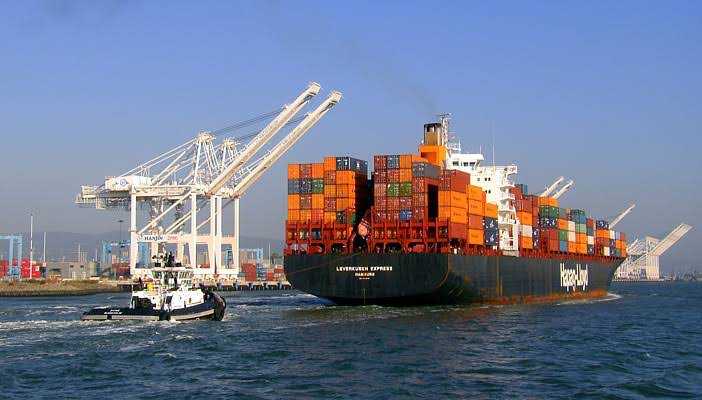In a detailed exploration of the economic repercussions stemming from the Nigerian government’s persistent adjustments to import duty charges, it becomes evident that such measures have far-reaching consequences, both domestically and internationally. The Federal Government, under President Bola Tinubu’s administration, has been implementing a series of exchange rate adjustments for customs clearance of cargoes, with the aim of stabilizing the forex market and promoting ease of doing business. However, these efforts have inadvertently led to significant challenges within the maritime and importation sectors.
The Central Bank of Nigeria (CBN), in its bid to stabilize the naira, has adjusted the exchange rate multiple times, most notably impacting the import duty rates. These adjustments have had a domino effect on the cost of clearing goods, particularly affecting the operational dynamics of port activities, bonded terminals, and the broader economic landscape.
The sequence of exchange rate adjustments by the CBN—ranging from N422.30/$ to N1,515.092/$ within a relatively short period—has not only escalated the cost of clearing cargoes but has also led to a shift in importer preferences. A significant portion of Nigerian importers are now opting for ports in neighboring countries where duty rates are more stable and economically favorable. This migration has contributed to a reduction in port activity in Nigeria, increased the volume of overtime cargoes, and heightened concerns over potential job losses and inflationary pressures.
The economic implications of these policy shifts are profound. The escalating cost of clearing cargoes directly influences the cost of goods in the market, as import costs constitute a significant component of the final retail price. This scenario places an additional financial burden on consumers and manufacturers reliant on imported goods, further exacerbating inflationary trends.
Industry stakeholders, including the Sea Empowerment Research Centre (SERC) and the Africa Association of Professional Freight Forwarders and Logistics of Nigeria (APFFLON), have voiced concerns over the sustainability of these policy adjustments. The frequent increase in the exchange rate for customs duty assessment is seen as a deterrent to the efficient functioning of Nigeria’s ports and a potential catalyst for cargo diversion to more cost-effective neighboring ports. This diversion not only undermines Nigeria’s economic interests but also jeopardizes the gains made in port reforms and efficiency improvements in recent years.
Critics argue that the government’s approach to managing import duty and exchange rate adjustments appears to lack a comprehensive understanding of its broader economic implications. The resultant cargo diversion, alongside the potential for increased smuggling due to porous borders, poses significant risks to Nigeria’s economic stability and revenue generation capabilities. Moreover, the impact on employment cannot be overstated, with bonded terminal operators and other port-related businesses contemplating workforce reductions to mitigate the financial strain imposed by these policy changes.
In response to these challenges, stakeholders have called for a reassessment of the current policy trajectory. Proposals include a moratorium on further exchange rate adjustments for customs duty assessments, a comprehensive impact analysis of recent policy changes, and a reevaluation of fiscal and monetary policies in light of their effects on trade, inflation, and employment. The emphasis is on fostering a more predictable and stable economic environment that can support the growth and development of Nigeria’s importation and maritime sectors.
Furthermore, the role of the CBN and the Ministry of Finance in these developments has come under scrutiny. The arbitrary nature of the exchange rate adjustments and their direct impact on import duty rates call for a more coordinated and transparent approach to policy formulation. Stakeholders suggest that a more balanced and consultative process, involving key industry players and economic experts, could help align monetary and fiscal policies with the broader objectives of economic stability, growth, and competitiveness.
In conclusion, the Nigerian government’s strategy of frequent import duty hikes, as a means to address economic challenges, underscores a complex interplay of policy intentions and unintended consequences. The move, aimed at stabilizing the forex market and promoting ease of doing business, has inadvertently led to operational challenges within the maritime sector, cargo diversion, and broader economic implications. A recalibration of policy measures, informed by a comprehensive analysis of their impacts and stakeholder consultations, is imperative to navigate the delicate balance between fiscal responsibilities and economic growth.



